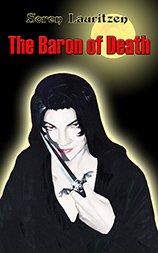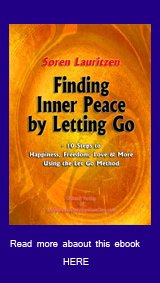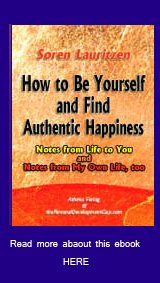Hermann Hesse Nudges Readers to Seek Enlightenment and the Meaning of Life
Hermann Hesse was a fiction writer and poet whose work was heavily influenced by Eastern mysticism.
While he didn't write self help books, his work caused readers to expand their thinking and undergo self inquiry.
He became very popular with the counter culture of the sixties, which promoted free thinking, spiritual experimentation, and psychedelics. His most notable works include "Siddhartha" and "Steppenwolf."
Background Of Hermann Hesse
Hermann Hesse was born in Germany on July 2, 1877. He lived to the age of 85 and died in Switzerland on August 9, 1962.He had a strict upbringing and showed signs of depression at a young age. His grandfather spoke several languages and was a doctor of philosophy. He encouraged young Hermann Hesse to read from the volumes of world literature in his vast library. Reading, writing, and music were all important parts of his family life while growing up, and heavily influenced the course of his life.
Hesse's teen years were tumultuous. He became friends with the wrong crowd, became rebellious, and took up drinking. Depression continued to haunt Hesse and he even attempted suicide.
As a young adult, Hermann Hesse worked in a bookshop and surrounded himself with his love of reading. Soon he was writing poems and stories of his own. His first published works were failures, but slowly his writing became more popular.
Hermann Hesse continued to struggle with depression into his adult life. He sought relief from psychoanalysis and knew Carl Jung personally. Psychotherapy seemed to fuel his creativity and passion for writing.
During his long life he penned numerous poems, short stories, and books. The writings of Hermann Hesse touched so many people that he became world renowned. Schools were named after him in Germany, theatres where named after him in the United States.
The popularity of his books surged after his death in 1962 as the hippie movement embraced his theme of the quest for enlightenment. His books became popular reading among university students and some even became required for certain high school and college classes.
Hermann Hesse received numerous prestigious awards for his work throughout the decades of his career. In 1946, he earned the Nobel Prize in Literature for his book "The Glass Bead Game."
Important Books by Hermann Hesse
• "Siddhartha" was the ninth novel written by Hermann Hesse. It was originally published in 1922 and is still widely read today. It tells the story of a spiritual journey taken by an Indian man during the time of Buddha. It was written in German as was much of the other work by Hermann Hesse, and not published in the United States until 1951 when it went on to influence a generation of youth during the 60s. To better understand his character who was in pursuit of enlightenment, Hesse became reclusive while writing this book and immersed himself in Buddhist and Hindu teachings.• "Steppenwolf" was published in 1927 and was the tenth book written by Hermann Hesse. This book was an international best seller although Hesse claimed his work was misunderstood. The story is about spiritual crisis and it combined autobiographical elements and was influenced by Hesse's obsession with psychoanalysis. The title was derived from the wild and homeless nature of the wolf of the steppes that conflicted with the protagonist's more spiritual nature. In an important passage in the book, the characters attend The Magic Theatre where they experience fantasies of the mind. The Magic Theatre that was founded in 1967 in San Francisco and became one of the most prominent theatre companies in the US, took it's name from this element found in Steppenwolf. Some members of the counterculture understood the passage to be referring to the use of psychedelic drugs. This work by Hermann Hesse was made into a film in 1974 that starred Max von Sydow.
• "Narcissus and Goldmund" was published in 1930. When translated into English, the book was titled "Death and the Lover." This book earned Hermann Hesse much acclaim. The story tells about a young man who left a Catholic monastery and wandered around Medieval Germany in pursuit of the meaning of life. This book reflects a recurring theme in Hesse's works of the struggle to find oneself and the conflict of opposing opposites within a person.
• "Journey to the East" was published in 1932. In this short novel, Hermann Hesse tells the story of a man who joins a religious sect called The League. The League has many prestigious members, some real and some fictional, that include a character from "Siddhartha," Plato, Don Quixote, Pythagoras, and Mozart. Part of the sect heads to the East to search for the ultimate truth and in their journey they travel through space and time. All does not go well as they quickly lose a beloved member of the group and the rest of them are reduced to arguing and distress. Years later, after a lifetime of bitterness and disillusionment, the main character discovers the lost member was actually the president of their sect who was giving them a test of faith which they all miserably failed at the time.
• "The Glass Bead Game" was the last novel written by Hermann Hesse. It was published in 1943. The novel is set hundreds of years into the future in a location in Europe that has been set aside to nurture the mind. The city was reserved for intellectuals who ran boarding schools and played the Glass Bead Game. The game is incredibly sophisticated and requires years of study in the arts and sciences to play. The book is a psychological coming of age story set in a utopian society. Hesse is said to have been inspired to write the "Glass Bead Game" as a response to the oppression of Nazi Germany that was unfolding as he wrote the work.
The Legacy of Hermann Hesse
The influence of Hermann Hesse has lived on for decades past his death. Even though he didn't write self help books, he still influenced many readers.He drew from great thinkers such as Jung and Nietzsche. He studied Eastern mysticism extensively. His own life was filled with despair, adversity, and search for meaning. All these aspects played out in his stories. His characters were extensions of himself.
By reading about his pursuit of enlightenment, readers over the decades have been nudged to question the meaning of life and search for their own truth.
The Personal Development Guy's Self Improvement Ezine (FREE)
Would you like to keep in touch - and get high-level tips and special bonuses? Then please sign up for my self improvement newsletter The Personal Development Guy's Self Improvement Ezine. It is totally FREE.
I LOVE Your Support
If you've found the free personal development content on this website useful, please click the Donate button. Your donation will help me to keep producing free, high-level self improvement information. I am VERY GRATEFUL for your support!
Inspirational Quotes, Poems and Funny Short Stuff
If you want, you can also get your personal development, spirituality and general wisdom in an ultra light version - or even add your own wisdom to the site. Just go to the other sister of this website at:
- World's Best and YOUR Best Quotes, Poems and Short Funny Stuff
Quotescoop.com is also known as:
(http://www.inspirational-quotes-short-funny-stuff.com).
High-Level Positive Parenting Advice and Deep Insights
Positive Parenting Ally is the parenting equivalent of the Personal Development Guy. This is where you go if you want really deepen your understanding of parenting, empower your kids and make everyday life more easy and joyful.
Positive-Parenting-Ally.com
- Parenting advice for the conscious, open-minded parent!
Back to the top of this page about Hermann Hesse Nudges Readers to Seek Enlightenment and the Meaning of Life
Where Would You Like to Go Next?
To see what has been added to this site recently (plus offers, etc.), check out Blog & News at thePersonalDevelopmentGuy.comTo share your own short self improvement ideas, tips, musings, quotes, stories, spiritual jokes, etc. (and read the short ideas, etc. others have shared) jump to Shared Blog: Self Improvement Ideas
Jump to the Personal Development Guy Homepage
Jump to Self Help Books.
List of articles about self help books listed alphabetically: Alfred Adler, Barbara De Angelis, Maya Angelou Biography, Arjuna Ardagh, Richard Bandler, Brandon Bays, Alain de Botton, Gregg Braden, Brene Brown, Les Brown, Leo Buscaglia, Tony Buzan, Andrew Carnegie Biography, Carlos Castaneda, Pema Chodron, Deepak Chopra, Deepak Chopra Books Paulo Coelho, Stephen Covey, Peter Drucker, T. Harv Eker, Masary Emoto, Timothy Ferriss, Debbie Ford, Viktor Frankl, Mahatma Gandhi, Gangaji, Shakti Gawain, Kahlil Gibran, Daniel Goleman, Amit Goswami, Alex Grey, Stanislav Grof, David Hawkins, Louise Hay, Hermann Hesse, Esther Hicks and Jerry Hicks, Napoleon Hill, Susan Jeffers, C G Jung, Jon Kabat-Zinn, Byron Katie, Robert Kiyosaki, Bruce Lipton, Ramana Maharshi, J W Marriott, Abraham Maslow, John Maxwell, Drunvalo Melchizedek, Anthony de Mello, Anthony De Mello Quotes, Dan Millman, Bruce Moen, Robert Monroe, Michael Newton, Daniel Pink, Dave Ramsey, Ayn Rand Books, James Redfield, Cheryl Richardson, Anthony Robbins, Anthony Robbins Books Carl Rogers, Jim Rohn, Marshall Rosenberg, Geneen Roth, Don Miguel Ruiz, Robin Sharma, Barbara Sher, George Soros Biography, George Soros Quotes, Eckhart Tolle, Brian Tracy Books, Neale Donald Walsch, , Joe Vitale, Lyall Watson, Alan Watts, Stuart Wilde, Marianne Williamson, Larry Winget, Gary Zukav, Best Self Help Books, Self Help Books for Women,







